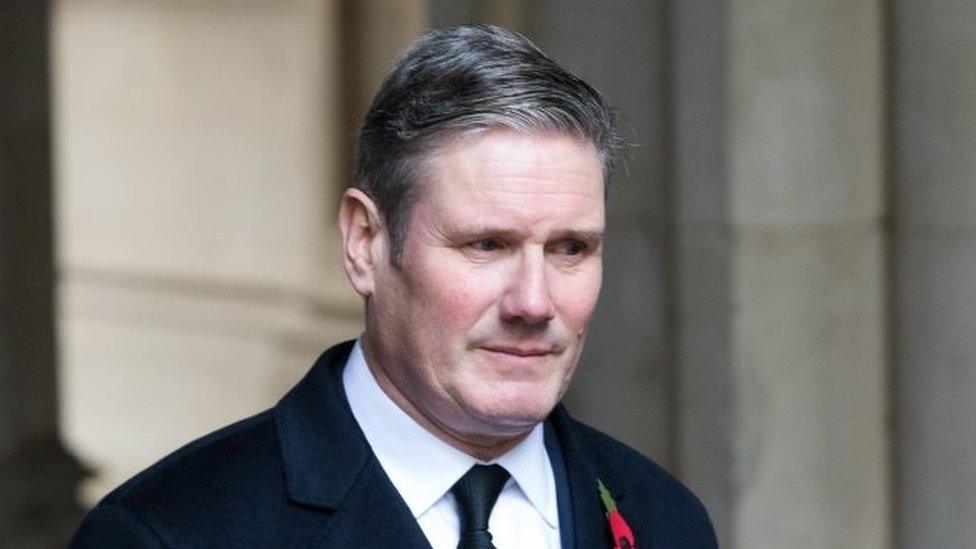No faction gets a clean sweep in Labour NEC poll
- Published

Sir Keir Starmer won the leadership of his party by a wide margin in April but his grip on Labour's ruling national executive (NEC) has been more tenuous.
He has won the body's backing for his reforms so far - but sometimes by very tight margins.
In today's elections of nine constituency representatives, the "Grassroots Voice" candidates - who represent the Left and are closer to the former leader Jeremy Corbyn - won five places.
Their leading candidate was former MP Laura Pidcock.
Had she retained her North West Durham seat at the 2019 election, some on the left saw her as a future leader.
Some insiders say their chances were bolstered by a campaign to reinstate Mr Corbyn, who was suspended from membership when he said opponents had overstated the scale of anti-Semitism.
A panel of NEC members could decide whether or not Mr Corbyn will be readmitted to the party.
'Labour to win'
The 'Labour to Win' ticket consisted of candidates who pledged loyalty to Sir Keir Starmer, and who want to see the party move further from the Corbyn era.
They won three seats in the NEC election.
Their most prominent candidate, Luke Akehurst, topped the NEC poll overall.
He runs Labour First, a group of "moderate" Labour members whose aim is to ensure "the party is kept safe from the organised hard left".
A further seat was taken by Ann Black, who was backed by the "soft-left" Open Labour group.
She had previously fallen foul of some on the Left who felt she hadn't been sufficiently loyal to Jeremy Corbyn, though she disputes this.
No one faction gained a clean sweep of seats because the voting system changed from the traditional 'first past the post' winner-takes-all method to a more proportional system.
Starmer ally Carwyn Jones - the former first minister of Wales - won election as the Welsh representative.
A Left candidate - Ellen Morrison - won the seat elected by members with a disability by a very narrow majority.
The two representatives of Labour councillors - who are largely supportive of Starmer - retained their seats.
Further challenges
So after Friday's results Keir Starmer seems set to retain a working majority on the executive - but an opportunity to "copper-bottom" it has been missed.
Trade unions which pay to affiliate to Labour are also represented on the body - but are appointed by their own organisations, so they did not take part in Friday's elections.
But challenges still lie ahead for Keir Starmer on this front.
Members of the country's biggest union, Unison, are voting in a leadership contest this month.
If a supporter of Jeremy Corbyn - Roger Mackenzie - wins, then in due course the union's representatives on Labour's NEC are likely to change,
And be less amenable to the current leadership.
The make up of the NEC is important.
It is the body which will draw up rule changes to implement the recommendations of the Equality and Human Rights Commission on anti-Semitism in Labour's ranks.
And it will respond to a forthcoming report on the party's internal culture.
The results took longer than expected to appear.
The proportional voting system meant that there were 37 vote counts.
Vote late, vote often?
But candidates had been told that some former members who had resigned from the party had still voted electronically, so a time-consuming process had to be put in place through independent scrutineers to eliminate those votes.
Some on the Left felt this was an attempt to suppress their vote.
Those who resigned recently are most likely to have done so in protest at Jeremy Corbyn's suspension.
But the party has said anyone who voted while a member then subsequently resigned would not be disqualified.
But those who had voted while no longer being party members needed to have their ballots struck out.
A source said: "It's a matter of contract law."